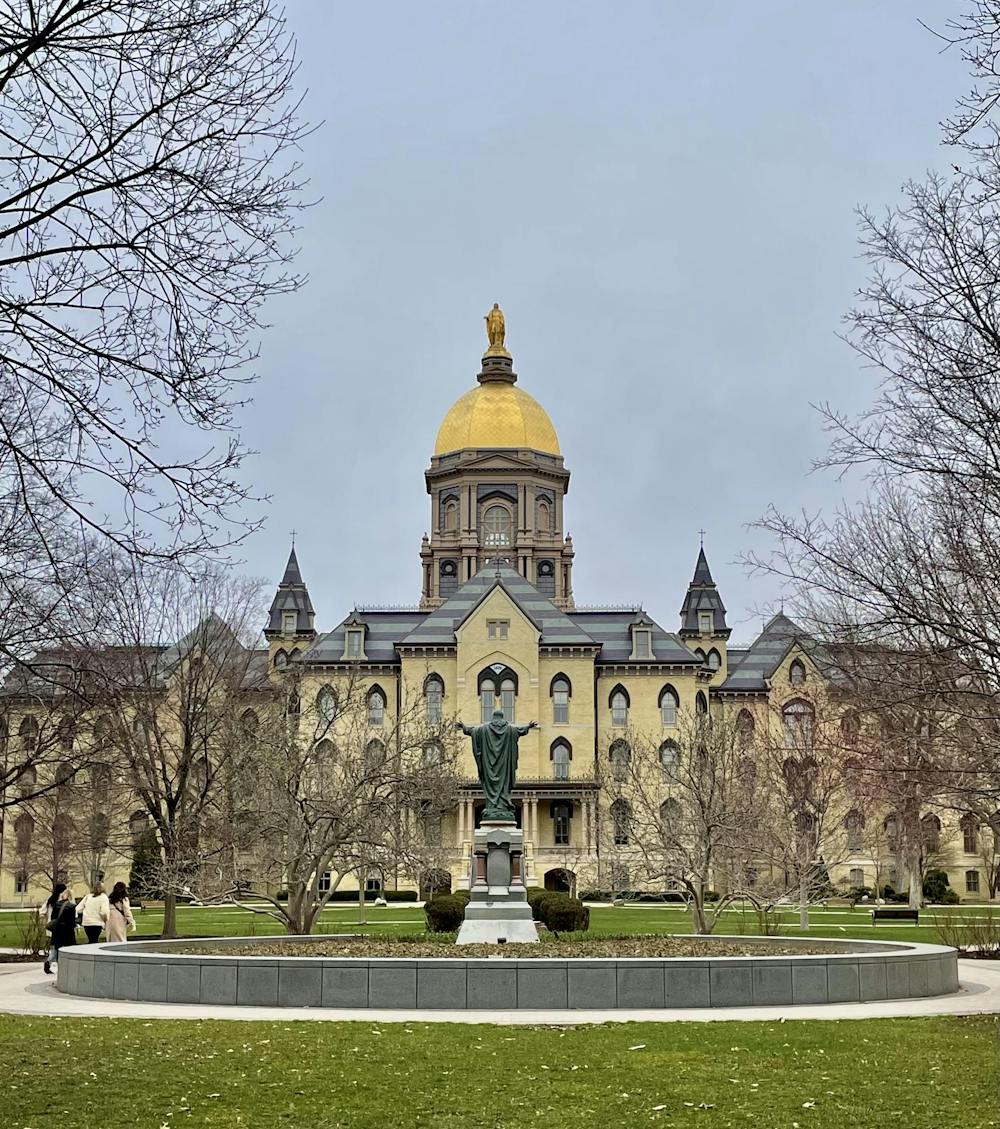Notre Dame continues to fight a class-action lawsuit alleging it engaged in tuition price fixing with other elite universities. Twelve of the seventeen defendants in the case have agreed to settle for a combined $320 million.
The lawsuit, filed in January 2022, alleges that a group of universities including Notre Dame, Harvard, Yale and MIT, among others, illegally colluded to limit the amount of financial aid offered to prospective students. Universities have been legally exempt from antitrust review and permitted to use shared methodology to determine financial aid under a 1994 law, provided their admissions policy was need-blind.
However, the suit claims that the defendants were not need-blind in their admissions, and instead gave preferential treatment to students from wealthy families.
Court documents obtained by The Observer include evidence showing Notre Dame’s preference for wealthy applicants, including a quote from former associate vice president for undergraduate enrollment Don Bishop.
“We allowed their high gifting or potential gifting to influence our choices more this year than last year — because they simply were ranked and larger donors,” Bishop said. “Sure hope the wealthy next year raise a few more smart kids.”
Data included in court filings stated that priority-designated applicants at Notre Dame had notably higher admissions odds than other applicants. In 2017, the admission rate for “University Relations” applicants was 64%, while it was 18% for “non-priority” applicants.
The same document states that the Notre Dame’s Institutional Risk and Compliance Committee identified the growing number of donors and their children as a “top four risk” to the University.
Additionally, lawyers for the plaintiffs said Notre Dame had stipulated that every year from 2003 through 2022, the University had “in some instances admitted students based on factors which included the applicant’s family’s donation history and/or capacity for future donations.”
A 2020 report by Bishop showed that 86 donor-influenced admitted students were enrolled in 2020, 65 of whom “needed special” consideration to be admitted.
An expert report for the plaintiffs by Hal J. Singer, an antitrust expert and professor of economics at the University of Utah, found that “the mean ACT scores for non-priority-designated applicants were statistically significantly higher than for priority-designated applicants for every year between 2007 and 2016. The mean SAT scores for non-priority-designated applicants were statistically significantly higher than for priority-designated applicants between 2007 and 2015.”
In 2015, Mary Nucciarone, Notre Dame’s director of financial aid, celebrated Congress’ renewal of the law that allowed the University to use a shared financial aid formula.
The law expired in 2022 when Congress failed to renew it again, meaning schools are now bound by antitrust laws.
The litigation continues at the same time as Notre Dame has expanded its financial aid offerings. In September, during his inaugural address, President Fr. Robert Dowd announced the University would go need blind and loan-free for all students, including international students.
Cornell, Georgetown, Massachusetts Institute of Technology, the University of Pennsylvania and Notre Dame are the only remaining defendants.










